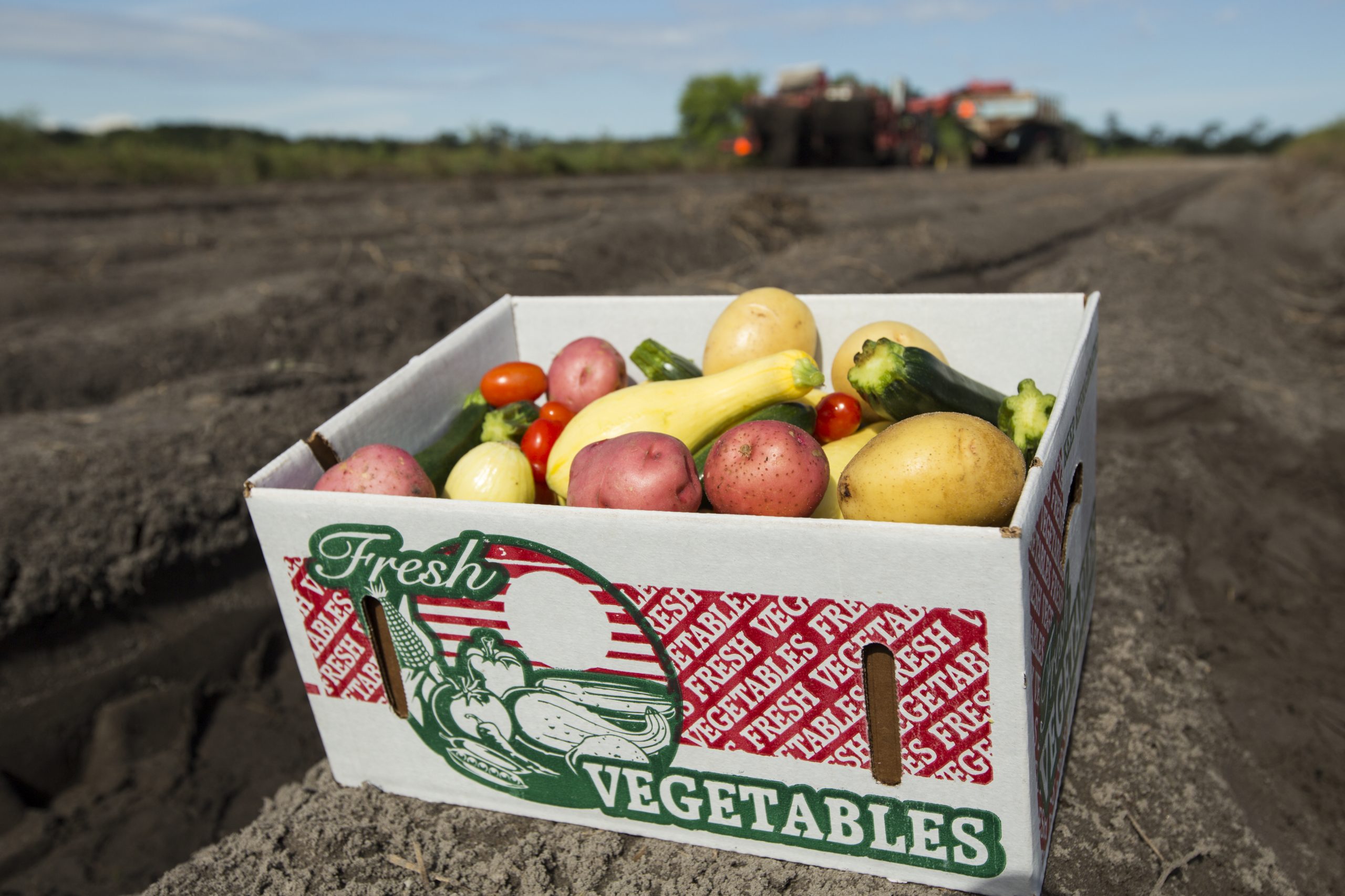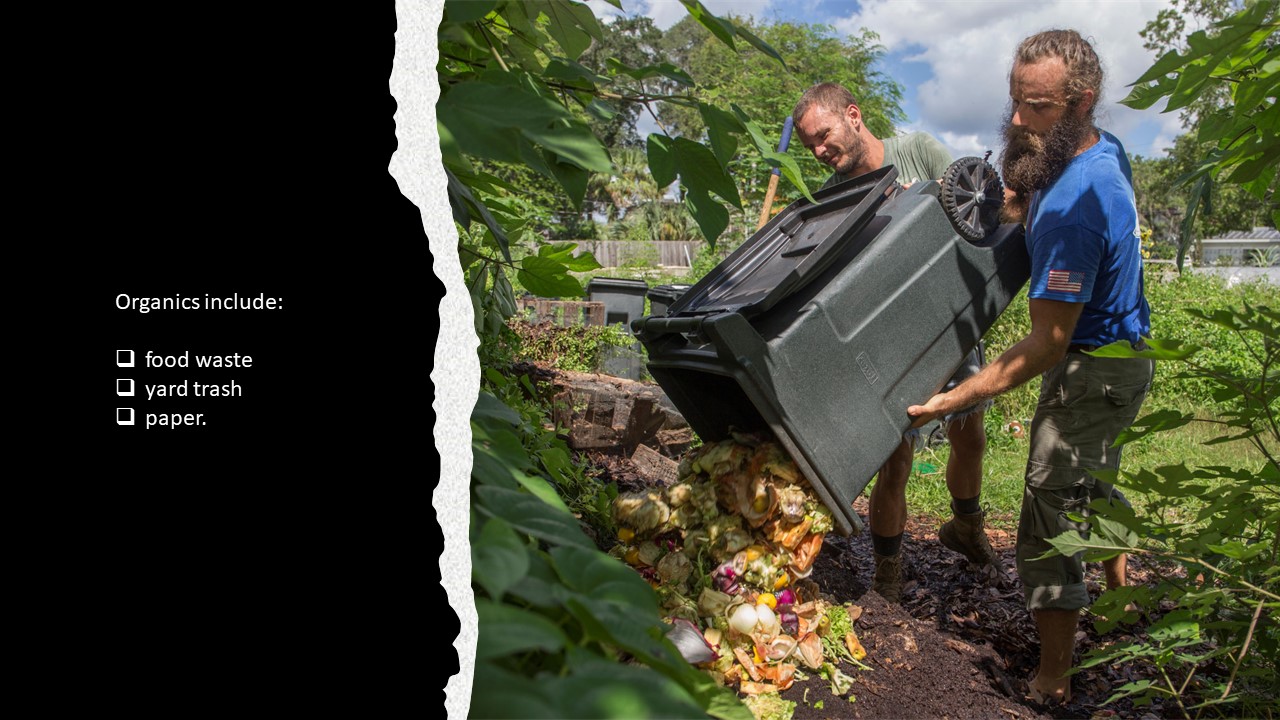Article by UF/IFAS Extension Broward County Urban Horticulture Agent Lorna Bravo
Did you know that Harvard Law School Food Law and Policy Clinic estimates that approximately 40% of food produced annually is never consumed in the United States, resulting in 62.5 million tons of food going to landfills?

Did you know that organics are one of the most significant fractions of waste, by weight, generated in Florida?
-
- Of the 47 million tons of MSW generated in 2020, organics accounted for 36% of Florida’s waste stream.
- Reducing organics in the waste stream is vital for Florida’s recycling goal

What is Organic Waste?
- Organic waste encompasses food scraps, yard debris, and paper materials.
What are the alternatives to Sending Our Trash to a Landfill?
Composting provides a sustainable solution to minimize our ecological footprint. According to experts, proper composting and recycling practices can significantly reduce the daily average of four and a half pounds of trash that South Floridians send to landfills. For an in-depth exploration, don’t miss our Urban Composting Spotlight—available for viewing now
Vermicomposting: Sustainable Solutions for Urban Food Waste
In bustling urban environments, space constraints often pose challenges for managing food waste. However, creativity and innovation offer solutions.
Vermicomposting, also known as vermiculture or worm composting, harnesses the power of earthworms to transform waste materials into nutrient-rich compost. Let’s delve into the details:
- Worm Casting Magic:
- Earthworms work their magic by breaking down organic matter into a stable product. Their castings, rich in beneficial microbes, enhance soil health and moisture retention.
- As these tiny composting champions munch on your food scraps, they create a valuable resource for your garden.
- Homegrown Sustainability:
- The beauty of vermicomposting lies in its simplicity. You can easily set up a worm bin at home.
- By diverting food waste from landfills, you contribute to a healthier environment.
So, let those wriggly allies feast on your kitchen scraps, and watch your garden thrive!
Vermicomposting Project: Step-by-Step Guidance
If you’re keen on launching your own vermicomposting project, we’ve got you covered! Check out our YouTube videos for step-by-step guidance and inspiration to kickstart your sustainable journey.
Resources:
- Florida and the 2020 75% Recycling Goal – Final Report (floridadep.gov)
- Take the Pledge | FW Prevention Week (savethefoodfl.com)
- NRDC: Wasted – How America Is Losing Up to 40 Percent of Its Food from Farm to Fork to Landfill (PDF)
Contact us
You can follow our Facebook page at @http://facebook.com/urbanhortbroward
Visit our Website@ http://sfyl.ifas.ufl.edu/broward/urban-horticulture/
Visit our YouTube Channel at https://tinyurl.com/urbanhhortbcyoutube
Our Twitter page: https://twitter.com/HortUrban
Our Instagram page:UF/IFAS Urban Hort Broward (@urbanhortbroward) • Instagram photos and videos
 3
3
